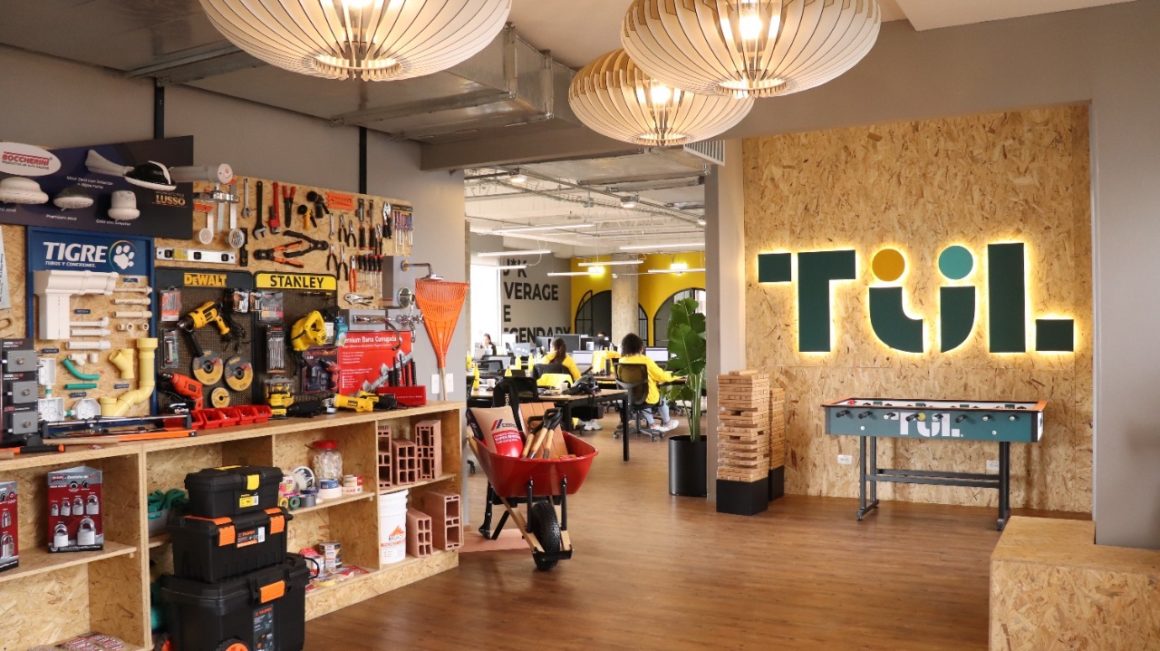RIO DE JANEIRO, BRAZIL – Tul, a Colombian startup that brings small building materials retailers out of the analog age, is barely two years old but has already attracted experienced investors and is preparing to land in Brazil, a US$27 billion market that could accelerate the company’s path to becoming a unicorn.
Bogotá-based Tul raised US$181 million in a Series B round that values the company at nearly US$800 million. The funding was led by 8VC – the firm of Joe Lonsdale, one of the founders of Palantir – and was backed by Avenir Growth Capital, also based in the US.
In the past year, Tul had also received funds from companies such as Lightrock, Coatue, Tiger Global, Foundamental, Vine, Marathon Labs, and H20. SoftBank and Monashees are also on the startup’s investor list.

Tul was founded by Enrique Villamarin Lafaurie, a Colombian executive who worked at Argos for nearly seven years as a digital retailer of building materials for small businesses in the suburbs.
The startup aims to change the experience of these store owners, who previously depended on a variety of distributors for different materials that didn’t always deliver on time and sometimes had exclusive contracts with some suppliers.
Through an app, store owners make their purchases from Tul, which promises next-day delivery and requires no minimum order value. The Colombian startup contracts with major suppliers in the building materials industry (Gerdau, ArcelorMittal, Ternium, Tigre, Bosch, to name a few) and resells the products to retailers.
With its distribution centers, Tul started in Bogotá but expanded in recent years and has now reached three countries, including Ecuador and Mexico, and nine cities. Brazil will be the fourth country, with São Paulo scheduled to arrive in March, when the startup will be fully two years after its founding.
Speaking to Bloomberg, Tul’s founder said the startup is expected to end the year with annual revenues of US$450 million. In Latin America, the startup’s total addressable market is US$120 billion.
“We buy the materials from the industry, store them and resell them. We are not a marketplace,” explains Bruno Raposo, a former Loft, and Glovo executive hired to head Tul in Brazil.
Small and medium-sized stores account for 60% of the Brazilian building materials market – the rest is either for contractors or sold by large companies such as C&C and Leroy Merlin.
By connecting with small building materials stores, which typically have no more than ten employees, Tul is beginning to meet the demand for Class C and D building materials. “We deliberately started with areas outside the extended center, in the outskirts of São Paulo.”
There are an estimated 140 thousand building materials stores in Brazil. In São Paulo alone, there are 15 thousand. “Usually, they are family businesses that are small spots for the industry, but very important for the neighborhood where they operate. They enable people to build their homes,” Raposo says.
The startup’s arrival in Brazil comes with great expectations. The first distribution center in São Paulo will not be the only one. Given the size of the São Paulo metropolitan area, it is likely that Tul will open other warehouses in the area. The company is also preparing to expand into other urban areas of the country, possibly Belo Horizonte and Rio de Janeiro.
If Raposo’s plans work out, Brazil will become Tul’s most important country by 2023. “Brazil is the great opportunity for Tul to become a unicorn,” he says. The number of employees here is expected to grow from five to 20 in short. In total, the startup already has more than 1,000 employees.
With the funds raised, Tul will invest in marketing to attract customers and working capital. In times of high building material prices and uncoordinated supply chains, careful management of supplies is critical.
The more tenants that use the app, the better Tul understands the dynamics of this market. “We can more accurately read demand so we can have a more equitable inventory. In the most mature cities, our average inventory is about five days,” Raposo says.

